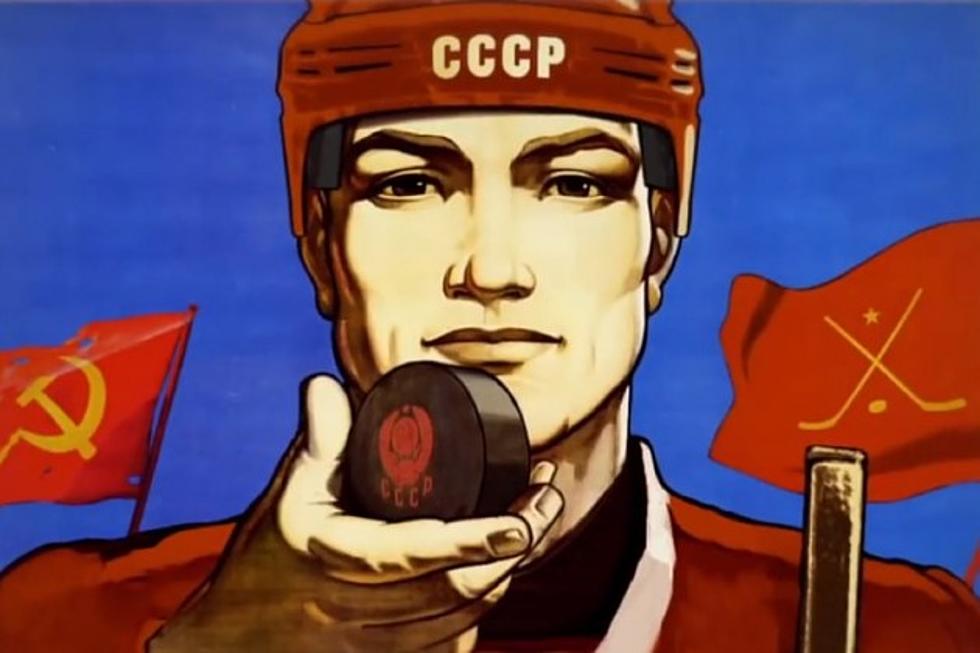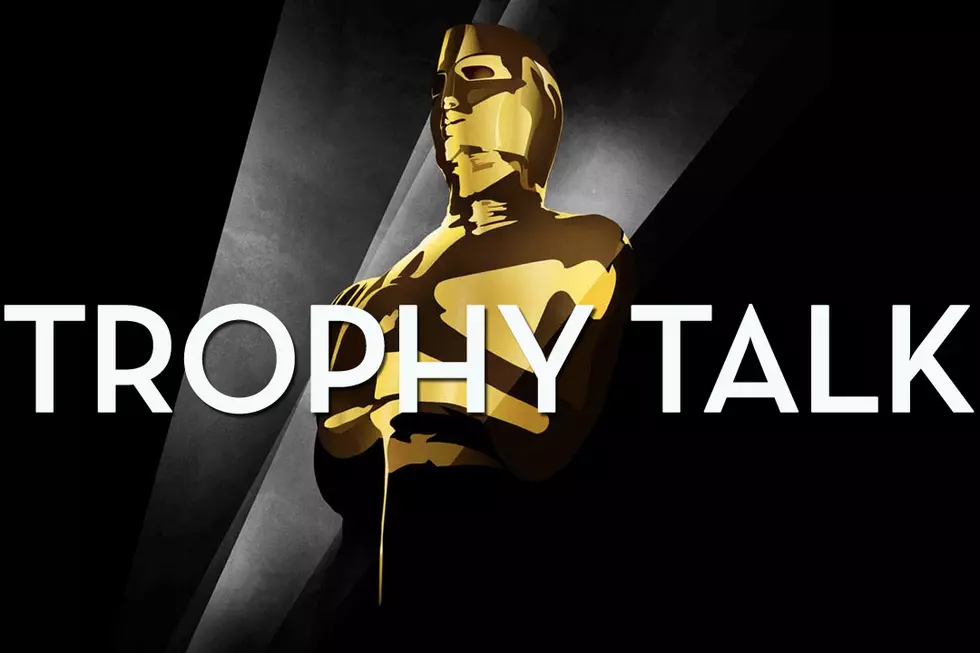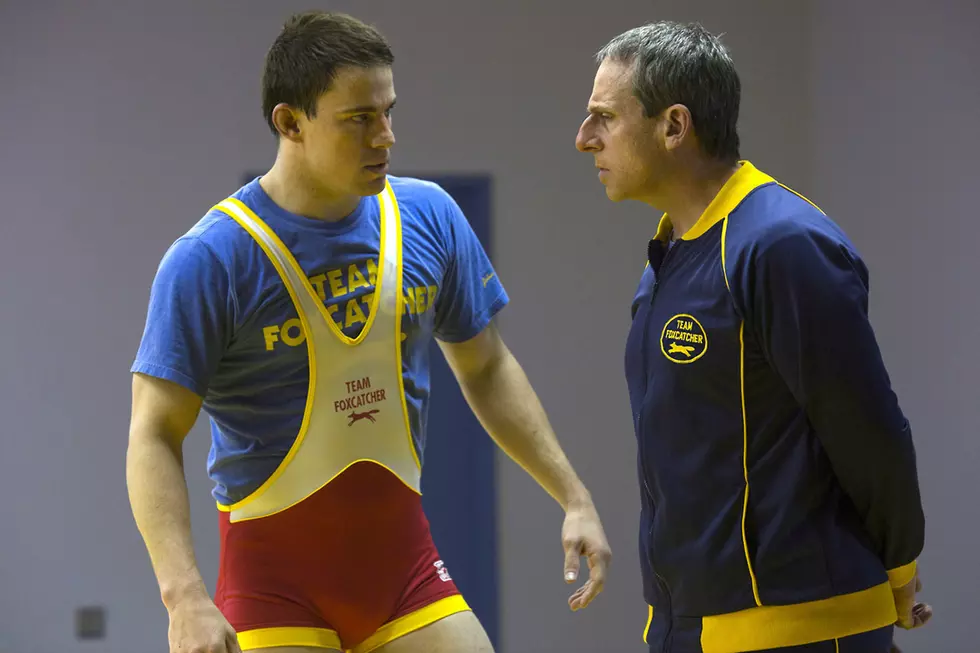
‘Red Army’ Review: The Soviet Hockey Team We All Loved to Hate
Hockey isn’t exactly the most popular sport in the United States. Even though it’s the fourth major sport, the NHL still has a difficult time keeping a television contract – and a big reason is because, outside of the cities that have an NHL team, there’s just not a lot of interest. Not many people in Nebraska are watching any upcoming Florida Panthers vs. Carolina Hurricanes game.
All of this is why I’m not so sure that people are going to flock to watch ‘Red Army,’ a documentary about hockey that is playing at the New York Film Festival. And not just hockey, but Russian hockey. Although, they should see 'Red Army.' Everyone should see 'Red Army.' Even though it's about hockey, it's not <i>really</i> about hockey.
What’s interesting here is that I can’t imagine director Gabe Polsky knew quite what he was making when he first embarked on ‘Red Army.’ What is essentially a history of the Soviet national hockey team becomes much more about the then-Soviet, now-Russian relationship with the United States over the last 35 years. ‘Red Army’ just might be one of the best Cold War documentaries ever made even though it’s about hockey, of all things.
First, the hockey: We’ve all heard the story of the famous “Do you believe in miracles?” U.S. hockey team that upset the scary Soviet team at the 1980 Winter Olympics. What’s not as known is that just a couple of years before, the Soviet team was kind of considered a joke – certainly no match for the mighty Canadian team. That was at least until the Soviet team easily trounced those Canadian teams in exhibition games. And ‘Red Army’ is wise to cover the 1980 Olympics about a third of the way through the movie – the 1980 Olympics isn’t really the point.
People also forget that the Soviet team that famously lost in the semi-finals to the U.S. (the U.S. team had to still beat Finland for the gold) went on to win the gold medal at the 1984 Winter Olympics (the U.S. did not advance to the medal round).
Even though technically ‘Red Army’ is about the entire Soviet team, it’s more of a profile of Slava Fetisov, who Polsky spends by far the most time interviewing. Fetisov is what we might call an “ornery cuss,” who tends to mock a lot of Polsky’s questions and has a habit of flipping the bird to the camera. It shouldn’t be too surprising to learn that Fetisov is fascinating.
Fetisov is the right person to take us through this story, as one of the very few members of both the ’80 and ’84 Olympic team; plus he’s one of the few holdouts who wouldn’t agree to the Soviet’s absurd salary restrictions once Soviet-born players were allowed to play in the NHL. (There was no limit to the contract, but the Soviet government was basically leasing players to the NHL in exchange for 90 percent of that contract.)
What’s so remarkable is that we almost think of that Soviet team as evil robots – basically a team filled with real life Ivan Dragos. Certainly not a team filled with real human beings who still get emotional talking about that defeat. And I suspect a lot of people don’t realize that many of these dreaded Soviet Olympians went on to play in the NHL. And, yes, there’s Fetisov skating around with the Stanley Cup he helped win in 1997 as a member of the Red Wings as everyone in Detroit goes nuts, even though they probably still hate the version of him who was skating in Lake Placid 17 years earlier. It’s a great story and quite an amazing transition to watch – but the world changed a lot over those 17 years and ‘Red Army’ can’t help but be a cipher for all of that.
And, Fetisov, as he’s wont to do, barks angrily at Polsky when the Cold War is specifically mentioned, even though the undertones of the Cold War is basically what he’s been talking about the whole time. (I hope someday Polsky releases what I'm sure would be a 60-minute supercut of Fetisov verbally abusing him on camera.) All of this is intertwined with interviews with a KGB agent whose job was to make sure the members of the hockey team didn’t defect when playing in the United States and Canada.
Again, I don’t think Polsky quite knew what he had here when he first started out – I mean, maybe he did, but that would have been quite an ambitious goal – but, regardless, what we do have is one of the most provocative and honest looks at what it was like to play behind the Iron Curtain for the team we all still seem to hate … even if we don’t really even think about why.
Mike Ryan has written for The Huffington Post, Wired, Vanity Fair and GQ. He is the senior editor of ScreenCrush. You can contact him directly on Twitter.
More From ScreenCrush









